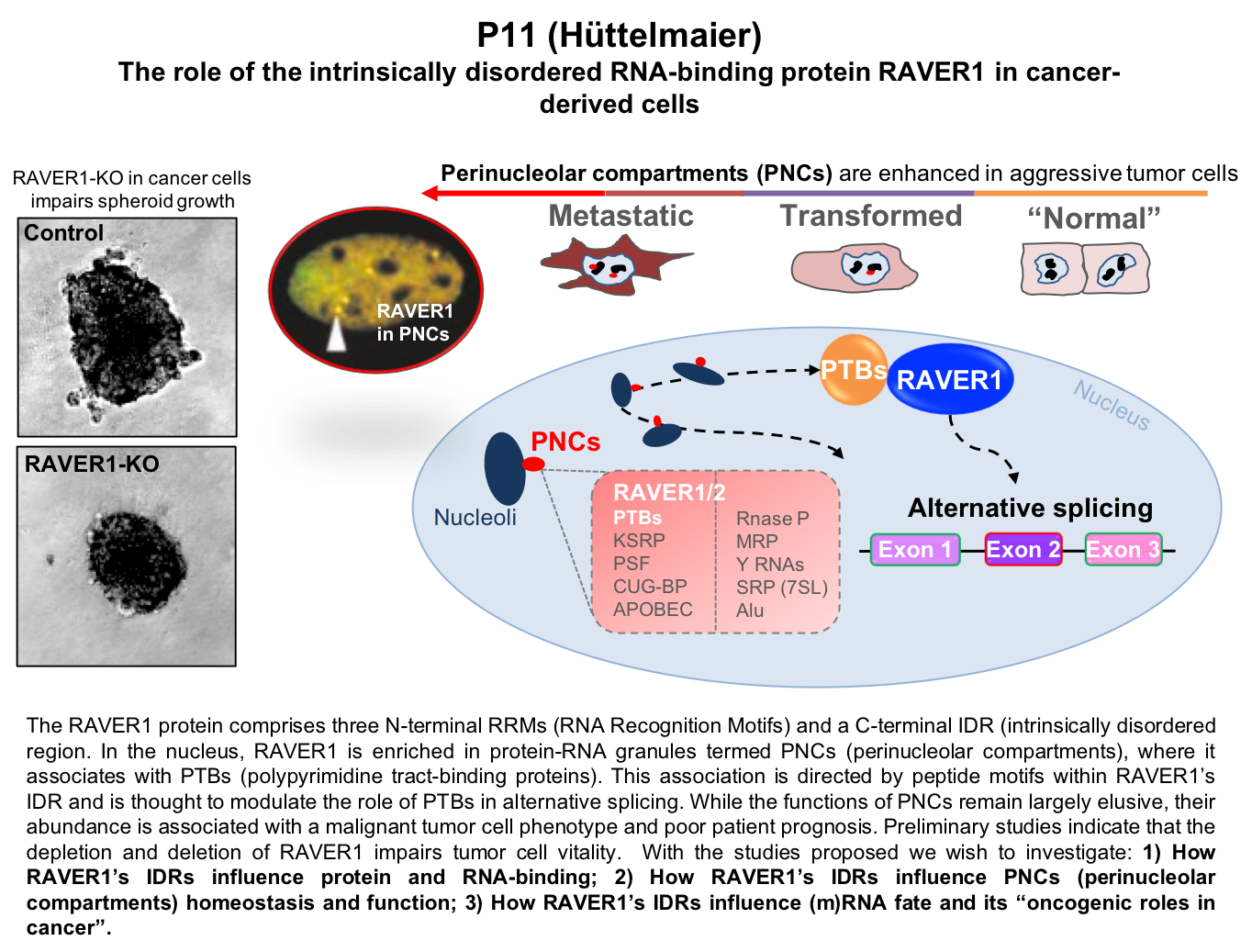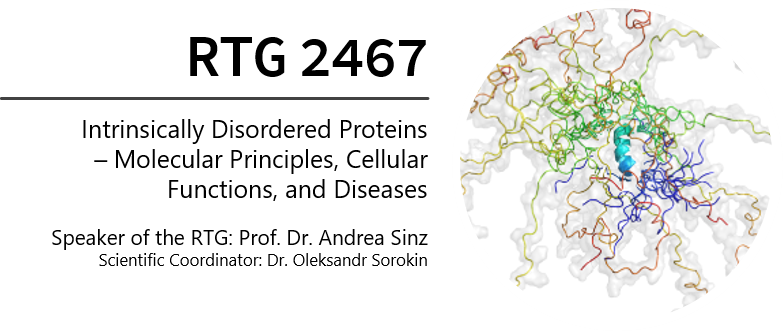
studied Biotechnology at the University of Braunschweig, Germany, where he obtained his PhD in 2000. Initially staying on as a postdoctoral research associate, he moved to the Albert-Einstein-College of Medicine, New York City, USA, in 2001 where he began to work on the role of RNA-binding proteins (RBPs) in controlling cytoplasmic mRNA fate. In 2004, he started his own research team as a junior group leader at the MLU in Halle and in 2009 he accepted a position as Associate Professor for Molecular Cell Biology. In 2010 he became the speaker of RTG 1591 “Posttranscriptional Control of Gene Expression” and in 2014 he was promoted to a Full Professor. He is also the director of the Core Facility Imaging that is located at the new Charles Tanford Protein Center. His current research focuses on the role of RBPs in cancer.
Project within the RTG

Key publications
Wurth L, Papasaikas P, Olmeda D, Bley N, Calvo GT, Guerrero S, Cerezo-Wallis D, Martinez-Useros J, García-Fernández M, Hüttelmaier S, Soengas MS, Gebauer F. UNR/CSDE1 drives a post-transcriptional program to promote melanoma invasion and metastasis. Cancer Cell. 2016, 30: 694-707.
Busch B, Bley N, Müller S, Glaß M, Misiak D, Lederer M, Vetter M, Strauß HG, Thomssen C, Hüttelmaier S. The oncogenic triangle of HMGA2, LIN28B and IGF2BP1 antagonizes tumor-suppressive actions of the let-7 family. Nucleic Acids Res. 2016, 44: 3845-3864.
Köhn M, Ihling C, Sinz A, Krohn K, Hüttelmaier S. The Y3** ncRNA promotes the 3′ end processing of histone mRNAs. Genes Dev. 2015, 29: 1998-2003.
Website: https://www.medizin.uni-halle.de/einrichtungen/institute/molekulare-medizin/forschung/ag-molekulare-zellbiologie & https://www.medizin.uni-halle.de/cfi
